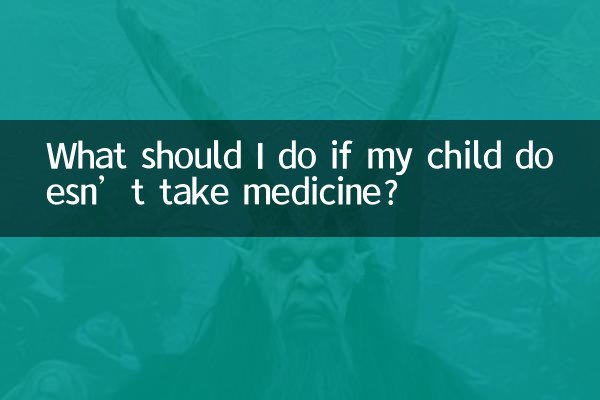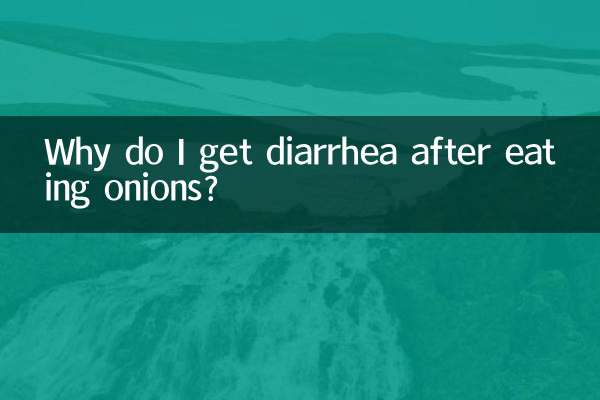What should I do if my child doesn’t take medicine? Hot topics and practical solutions across the Internet in 10 days
Children's refusal to take medicine is a common problem faced by many parents, especially during seasonal changes or periods of high disease incidence. In the past 10 days, this topic has triggered extensive discussions on major parenting forums and social media platforms. This article will combine hotspot data from the entire network to provide you with structured solutions.
1. Analysis of hot discussion data on the entire network (last 10 days)

| Topic keywords | Discussion platform | heat index | main focus |
|---|---|---|---|
| Tips on feeding medicine | Xiaohongshu/Douyin | 8.5/10 | Sharing creative medicine feeding methods |
| Drug taste improvement | Parenting Forum | 7.2/10 | How to mask bitterness |
| psychological resistance coping | Zhihu/Weibo | 9.1/10 | Children’s fear of medication |
| Alternative administration methods | Medical science number | 6.8/10 | Suppository/patch feasibility |
| Medication time selection | Mom group | 5.9/10 | Best time to give medication |
2. In-depth analysis of hot issues
1. Three main reasons why children refuse medicine
According to a recent questionnaire survey on maternal and infant public accounts:
| Reason type | Proportion | Typical performance |
|---|---|---|
| Taste rejection | 63% | Spit out the medicine and close your mouth tightly |
| difficulty swallowing | 22% | Cannot swallow the medicine and vomits |
| psychological fear | 15% | I cry when I see the medicine |
2. Five solutions that are hotly discussed on the Internet
| method category | Specific measures | Applicable age | effectiveness |
|---|---|---|---|
| Improvement of dosage form | Choose fruity granules/drops | 1-3 years old | ★★★★☆ |
| Medication feeding tools | Special medicine feeder and dropper | 0-2 years old | ★★★☆☆ |
| Behavior guidance | Gamification of medication feeding process | 3 years and above | ★★★★★ |
| Reward mechanism | Sticker reward system | 2-6 years old | ★★★☆☆ |
| Professional advice | Consult your doctor to change the medication method | All ages | ★★★★★ |
3. Sharing of the latest practical cases
The "Trilogy of Feeding Medicine" that went viral on the Douyin platform recently received more than 500,000 likes:
| steps | Operational points | Things to note |
|---|---|---|
| Preparatory stage | Refrigerate medications for 10 minutes to reduce taste stimulation | Confirm that the medicine can be refrigerated |
| Execution phase | Use the long-neck applicator to penetrate deep into the back of the tongue | Avoid triggering the gag reflex |
| consolidation stage | Give immediate strong taste stimulation (such as chocolate) | Confirm no drug interactions |
4. Summary of professional medical advice
According to the recent live broadcast by pediatric experts from tertiary hospitals:
| Situation classification | Solutions | Taboo |
|---|---|---|
| Ordinary resistance | Try different temperatures/dosage forms | Do not mix with baby bottles |
| violent resistance | Consider anal administration | Requires medical guidance |
| Continuous drug refusal | Prompt medical evaluation | Avoid force-feeding |
5. Excerpts from parents’ experiences
TOP3 practical tips from mom groups:
| Skill name | Specific operations | success rate |
|---|---|---|
| "Ice Cream Cover" | Give ice cream immediately after taking medicine | 78% |
| "Superhero Script" | Making up stories about drug superpowers | 65% |
| "Medicine Assistant" | Let the children "feed medicine" to the medicine doll | 82% |
Conclusion:Solving the problem of children's drug resistance requires a combination of scientific methods and innovative thinking. It is recommended that parents choose an appropriate plan based on their child's age and personality characteristics, and be sure to seek professional medical guidance when necessary. The latest data shows that using gamified guidance combined with appropriate rewards is 91% effective among children over 3 years old.

check the details

check the details